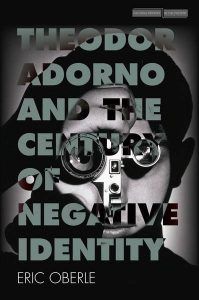Corey Robin at his own website:
 The history of the Frankfurt School in America is usually told as a story of one-way traffic. The question being: What did America get from the Frankfurt School? The answer usually offered: a lot! We got Marcuse, Neumann, Lowenthal, Fromm, and, for a time, Horkheimer and Adorno (who ultimately went back to Germany after the war)—the whole array of émigré culture that helped transform the United States from a provincial outpost of arts and letters into a polyglot Parnassus of the world.
The history of the Frankfurt School in America is usually told as a story of one-way traffic. The question being: What did America get from the Frankfurt School? The answer usually offered: a lot! We got Marcuse, Neumann, Lowenthal, Fromm, and, for a time, Horkheimer and Adorno (who ultimately went back to Germany after the war)—the whole array of émigré culture that helped transform the United States from a provincial outpost of arts and letters into a polyglot Parnassus of the world.
The wonderfully counter-intuitive and heterodox question that animates Eric Oberle’s Theodor Adorno and the Century of Negative Identity is: what did the Frankfurt School get from America? To the extent that question has been asked, it has traditionally provoked a negative response. Not a lot. Adorno was notoriously unhappy in the US: the kitsch, the kitsch. And for those Frankfurters who may have found what they were looking for in the States, the suspicion has always been that they were somehow seduced and made less smart—less gloomy, less dialectical, less mandarin, less mitteleuropäisch—by their experience in the US. Witness Erich Fromm.
But Oberle refuses that argument. In a work of boundless ambition and comparable achievement, which combines close reading of familiar texts and synoptic intellectual histories that bring together unfamiliar texts, The Century of Negative Identity shows just how indebted the Frankfurt School, particularly Adorno and Horkheimer, was to its time in America.
More here.
